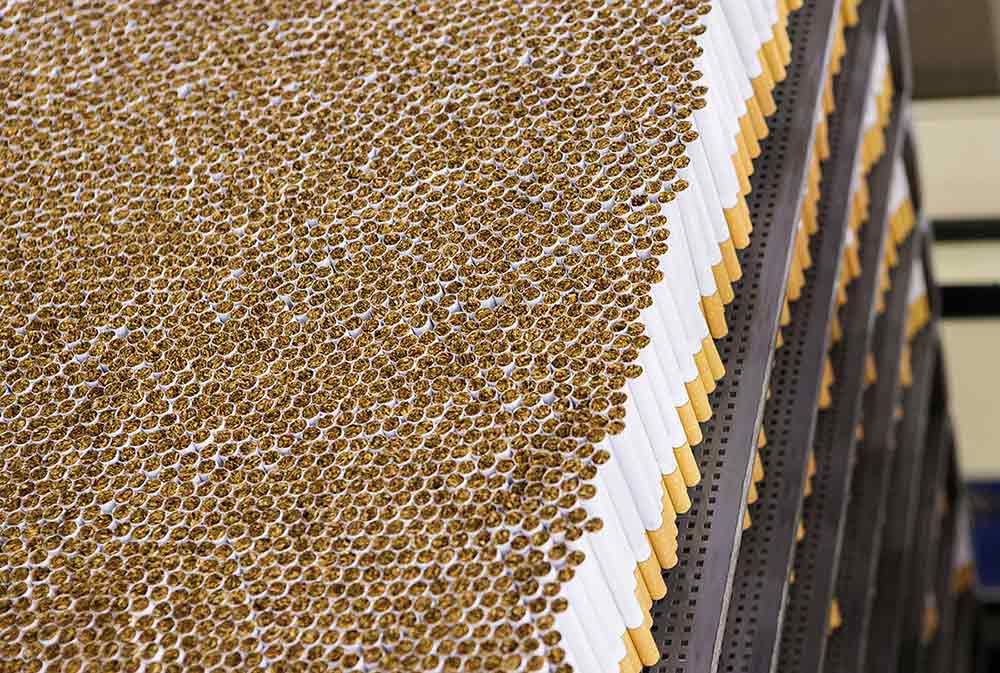- Resources
- News
-
-
Now Accepting Grant Funding Applications
Ready to tackle industry interference? Apply by February 25.
-
Get Email Updates
Sign up for STOP's emails and never miss an update on our latest work and the tobacco industry's activity.
-
Share a Tip
Do you have information on tobacco industry misconduct in your country? Let us know.
-
Now Accepting Grant Funding Applications
Environment
September 12, 2024

Tobacco companies promote heated tobacco products (HTPs) as “harm reduction.” There’s growing evidence that’s simply a scheme to hook users on risky, addictive products, and new research suggests manufacturing the devices multiplies the industry’s social and environmental harms.
The Project on Organization, Development, Education and Research (PODER), a Mexico-based nonprofit advocating for corporate accountability in Latin America, published a paper, “The Business of Addiction: Supply Chain Analysis of Heated Tobacco Products, IQOS,” examining these dangers.
The manufacturing of HTPs—which deliver nicotine by heating tobacco electronically—demands elements that damage ecosystems and disrupt food production. It also opens workers to exploitation and compounds problems with child labor and the displacement of people. All while adding to soaring demand for minerals that fund armed conflict or are crucial to energy independence.
The impacts of mining hit the “historically discriminated” the hardest. Among the victims are indigenous communities, women and girls, migrants and those living in poverty, researchers found.
Where is the harm reduced?
Long before these products emerged, tobacco was hurting people and wrecking the environment. Its cultivation often leads to deforestation and saps water resources, while pumping chemicals into the Earth. Harvesting subjects farmers to “green tobacco sickness,” a type of poisoning caused by touching uncured leaves. Packaging and distribution produce greenhouse gases. Smokers risk getting cancer and other deadly diseases, while cigarette butts are a leading source of toxic, single-use plastic pollution and the most littered items on the planet.
Despite little independent evidence, Philip Morris International, maker of IQOS, and other companies present HTPs as a means for adult smokers to quit. Conversely, there’s ample indication users still inhale dangerous compounds, many smokers use the devices and cigarettes concurrently, and the devices do nothing to reduce users’ risk of death and disease.
IQOS has lithium-ion batteries in the device and charger. A ceramic-and-metal mechanism heats tobacco, which has been converted to paste and formed into rods.

...Some mining operations have been linked to exploitation of children and child labor, while other enterprises have evicted communities or dispossessed them of their land.
There are variations in HTP construction by manufacturer, but they tend to include heating elements, semiconductors, electronic circuits and batteries. Here are a few of the many problematic raw materials they require:
- Tin, tungsten, tantalum and gold are conflict minerals, often mined illegally in nations with limited government control or in countries experiencing hostilities. Their sale has funded warfare in countries such as Democratic Republic of Congo, a top producer of cobalt (another problematic HTP ingredient). Violations of human rights and international law can accompany their mining.
- The mining of lithium, vital to alternative energy production, contributes to water crises in nations such as Bolivia, where it disrupts food production, livestock breeding and tourism. Operations also impact air and soil.
- Platinum-group metals are found mostly in South Africa, where explosive materials used in their mining pollute streams, wells and other resources in the water-scarce nation.
In addition to these problems, some mining operations have been linked to exploitation of children and child labor, while other enterprises have evicted communities or dispossessed them of their land. Meanwhile, those defending the environment, including journalists, have been criminalized—or worse, kidnapped or killed.
The mining impacts, researchers say, deepen a “capitalist model based on neo-colonial extractivism,” in which minerals are taken from low- and middle-income countries like Rwanda, Zimbabwe and Myanmar for HTP users in wealthier regions such as Europe, East Asia and Australia (and IQOS is set to enter the lucrative U.S. markets soon).
In sum, it’s the lower-income markets with fewer resources “where the environmental and social liabilities and the consequences of human rights violations remain and are most acutely felt,” researchers found.
A path to accountability
PODER offers recommendations to actually reduce harm, beginning with guaranteeing rights to health and information. Governments must ensure tobacco companies comply with their human rights obligations—and hold them accountable.
Policies must uphold the highest standards for protecting health, including regulating lobbying, preventing industry interference in policy and limiting public figures’ participation in promoting tobacco. Independent auditors should produce reports on how the impacts of mining increase the industry’s environmental harm.
Transparency is key to educating people, especially as tobacco companies promote their vision of a “smoke-free future” and disseminate misleading claims and science about the sustainability of harmful products.
Researchers warn against inaction: “As long as there is a plethora of electronic devices aimed at meeting specific needs, heated tobacco devices are bound to find new and more innovative ways to perpetuate the profits of addiction.”




